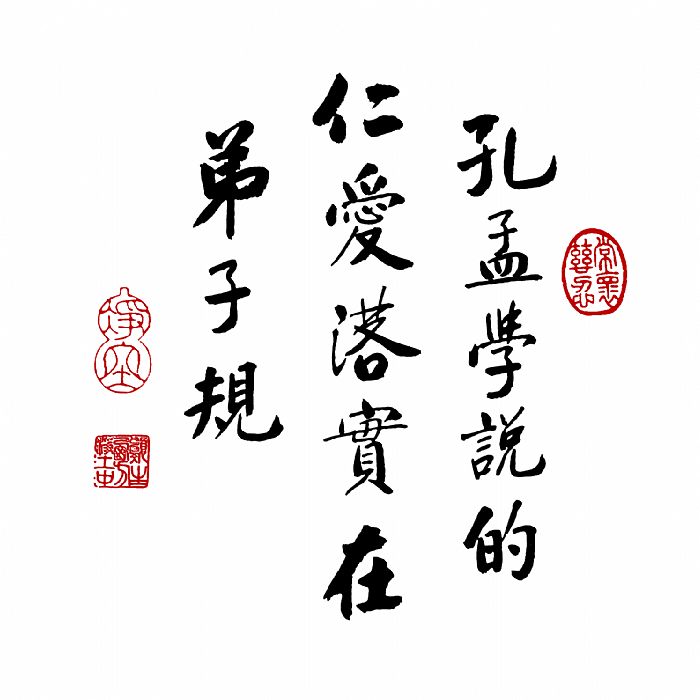【凡出言。信为先。诈与妄。奚可焉。】
When we speak, honesty counts the most.
Deceit and lies are unacceptable.
【话说多。不如少。惟其是。勿佞巧。】
It is better to talk a little than chat too much.
Tell the truth; do not speak insincerely.
【奸巧语。秽污词。市井气。切戒之。】
Cunning, deceptive speech, and foul language should never be used.
We should never conduct ourselves in an unruly manner.
【见未真。勿轻言。知未的。勿轻传。】
We should not readily talk about something we have not seen for it may not be the whole truth.
We should not readily pass on to others what we do not know for sure.
【事非宜。勿轻诺。茍轻诺。进退错。】
If someone asks us to do something and we are not sure whether it is appropriate,
we should not carelessly promise.
If we do promise to do something [and it is inappropriate],
we will be wrong whether we keep or break our promise.
【凡道字。重且舒。勿急疾。勿模糊。】
When speaking, say each word unhurriedly, clearly, and correctly.
Do not mumble or talk too fast.
Some people like to gossip and comment about the faults or good points of others.
But if something does not concern us, we should not get involved.
【见人善。即思齐。纵去远。以渐跻。】
When we see the goodness of others, we should encourage ourselves to learn from them.
Even if we are far behind them, gradually we will achieve as they have.
【见人恶。即内省。有则改。无加警。】
When we see the faults of others, we should reflect on our own behavior.
If we have the same fault, correct it.
If we do not have this fault, we should always be alert and not make the same mistake.
【唯德学。唯才艺。不如人。当自砺。】
When our morals, knowledge, and skills are not as good as those of others,
we should encourage ourselves to try harder.
【若衣服。若饮食。不如人。勿生戚。】
If the clothes we wear and the food we eat are not as good as what others have,
do not feel sad.
【闻过怒。闻誉乐。损友来。益友却。】
If criticism makes us angry and compliments make us happy, we will attract bad company,
while good friends will leave us.
【闻誉恐。闻过欣。直谅士。渐相亲。】
If we are appreciative of criticism and uneasy with compliments, people who are virtuous, sincere, and
trustworthy will gradually become our friends.
【无心非。名为错。有心非。名为恶。】
If we accidentally make a mistake, it is only an error.
But if we do it on purpose, it is definitely wrong.
【过能改。归于无。倘揜饰。增一辜。】
If we correct our faults and mistakes and do not repeat them, then they will cease.
But if we try to cover them up, we will be doubly wrong.












